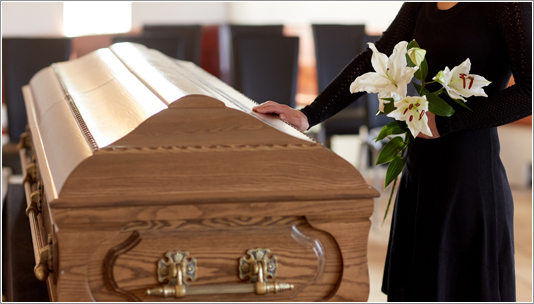

Preplanning a Funeral and Burial
May 9, 2018 | by the National Care Planning Council
Most states generally hold that funerals benefit the survivors and the person who has died has very little to say in the manner in which services are provided for his or her final interment. In some states a person can express the method of final arrangements in a will but in reality, unless there is a sizable estate and the division is contingent upon probating the will, very few families actually execute a will in probate court. Even if there is a will at death, there is usually no reason to respect it, since most personal assets and savings have been transferred in fact, through beneficiary arrangement or by default to the survivors and the home may pass by joint tenancy, by separate probate or in a trust. Most often wills are never used and remain at home in the drawer or in a safety deposit box.
This does not mean; however, that someone can't plan in advance for his or her funeral. There are reasons that people want to plan in advance.
- They have been through final arrangements with their own loved ones and experienced stress in making decisions dictated by time constraints.
- They have been concerned with what the loved one would have wanted for his or her final arrangements.
- They have been troubled by how much they should spend and not be considered spendthrift's by those who attend the funeral.
- Or they have wondered if the choice of funeral speakers, music and other recognition rituals had been what the loved one would have appreciated.
As a result, many older people want to spare their own family the stress they went through in burying their loved ones. They want to plan in advance for their funeral.
The person planning final arrangements provides a written plan for the family and possibly for a trusted funeral service provider outlining the details of what is to happen. A family meeting is arranged and an agreement is reached that the family will respect these last wishes. However, this is not a legal arrangement. Money can be set aside for this plan or the family may find money from other sources. If there is permanent life insurance, a portion or all of those proceeds can also be used to pay for the services and goods. The funeral services provider agrees to follow through with the plan upon approval of the family after the death. The following issues should be considered when designing a pre-arrangement plan.
- If a funeral service provider is selected in advance, will that provider offer similar services in the future, try to pressure the family to "buy up" to more expensive options or even be in business?
- Will the desired funeral items such as caskets, vaults or liners or grave markers be available in the future? If not, are contingency plans provided?
- About half of the states allow a disposition authorization form to be signed before death choosing cremation or burial as a final disposition. This bypasses approval by the family. If you live in such a state and you want this provision have you checked with your funeral service provider for availability of signing the form now?
- If there is no pre-arrangement with a service provider, will the family know how to properly shop for a funeral?
- In some states, if cremation is desired, all family members must agree. Has this been worked out before hand?
- Where will the money come from to provide for the funeral and burial and if it is to come from savings or insurance, has enough been set aside to allow for inflation with future costs?
- Is the funeral program flexible enough to allow for participants who may not be available at the time of the funeral?
- Do all family members agree on the price range or will one person bolt and insist on spending more?
- If a nonpublic interment with no viewing, no services, no flowers and no fancy caskets is desired will the family respect this request?
- If the person having preplanned, moves to another state is there a contingency plan?
About half of all states recognize the right of the deceased to pick the final disposition of the body -- either burial or cremation. In those states with no disposition laws, courts will likely recognize a written declaration by the decedent on his or her preference for disposition especially if the document came from a state that had a disposition law. Some states allow appointment of a designated agent for body disposition. This is most useful as it provides someone who can represent the interests of the person making the request after death occurs.
